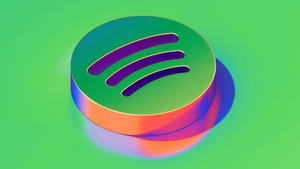Spotify is developing new tools that will allow users to remix and edit tracks on the platform, because if there’s one thing the TikTok generation loves more than a top pop song, it’s a top pop song sped up.
Sources have told the Wall Street Journal that the streaming service is looking to add tools that will allow users to easily speed up, mash up or otherwise tweak recordings, and then share their versions with other users, albeit only within the Spotify app.
It is thought that basic editing tools would be available to all premium subscribers, with more sophisticated tools then available on a planned new higher priced tier.
The tools are looking to capitalise on the popularity of sped up, slowed down and other altered tracks on social media and user-generated content platforms like TikTok, Instagram and YouTube. Those edits are usually unofficial, and therefore unapproved, and therefore not monetised by the music industry, unless a platform’s audio ID can match the edit to the original recording and then monetise on behalf the relevant rightsholder.
There are some official sped up and slowed down versions of tracks on the audio streaming services, put there by record labels in response to the popularity of such versions on TikTok et al. That does allow the music industry to benefit financially, of course.
Though there are also plenty of unofficial remixes on the audio streaming services as well, created and uploaded illegitimately, and likely paying out royalties to the remixer rather than the rightsholders of the original track. The people uploading those tracks may be creatively or commercially motivated, or both, or may be doing it as part of a wider streaming fraud scam.
On one level, legitimising what is already a popular phenomenon, and using it to generate new income for the music industry, makes sense. Although legitimatising the mash ups also raises some interesting copyright questions.
Assuming record labels and music publishers recognise the opportunity, should they be giving each artist and songwriter the option to opt in or out of that opportunity? Once you start allowing the adaptation of original recordings and songs, artists and writers might have vetoes or rights to consultation in their record or publishing contracts, plus you could argue that moral rights in copyright law do or should give creators control over the use of their work in this way.
Meanwhile, does making mash ups part of the Spotify proposition seem to legitimise the unofficial uploads to the streaming services which are infringing copyright and not generating any revenue for the music industry?
It will be interesting to see how all this is being pitched to the labels and publishers, and how it will then be presented to the wider music community.

